From 1946 to 1958, Joseph Alsop, my uncle, 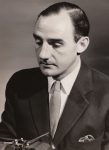
and his younger brother Stewart, my father, 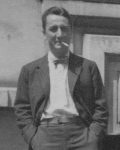
wrote a syndicated political column for the New York Herald Tribune. At its height, “Matter of Fact” appeared in more than 250 newspapers. Today, decades later, an incident involving Joe Alsop, Russian intelligence, and a so-called “honey trap” in a Moscow hotel seems to have particular relevance. Uncle Joe, a closeted homosexual, was photographed in bed with a young man in a Moscow hotel room in February, 1957. In his subsequent secret confession, Joe described the KGB agent as “an athletic blonde, pleasant faced, pleasant-mannered fellow.” The incriminating photos would dog Uncle Joe for the rest of his life.
With the claims about damaging videos showing President-elect Trump caught in a compromising position in a Moscow hotel room, my uncle’s experience has been noted in a New York Times article on “kompromat” and also in an article by Ed Yoder, the journalist who admired my uncle and first broke the story about his assignation after Joe died in 1989. In the homophobic 1950s, the incident could easily have been a career-destroying indiscretion, but what was interesting was my uncle’s reaction to it… his deep-seated, sometimes stubborn and pig-headed patriotism.
In the days immediately after the KGB caught Joe in bed, Russian agents met with my uncle to encourage him to spy for the Communist government. After some sobering days—when he “played the game out further to see where it would lead”—Joe contacted Charles Bohlen, his old friend and the U.S. ambassador to the Soviet Union, and another personal friend, Frank Wisner, the Deputy Director of Plans for the CIA. Both encouraged him to write out a full “confession” of the incident in order to take the sting out of any blackmail efforts by the KGB. Uncle Joe did as he was told, admitting to the secret of his homosexuality, information he foolishly believed he’d been able to keep from his family and close friends. That nine-page document wove its way through the upper echelons of the Eisenhower administration, from CIA Director Allen Dulles to Allen’s brother, Secretary of State John Foster Dulles, and eventually to J. Edgar Hoover at the FBI.
Many of these men, furious at Alsop’s constant criticism of Eisenhower and his administration, discussed how they might use his secret confession to force him to soften his criticisms of the president. Hoover made sure that Joe’s written report on the incident reached people at the highest levels of government. At one point, James Hagerty, Ike’s press secretary, threatened to “lift that fag’s press pass” in order to deny him access to White House briefings. Eventually they abandoned the idea, as Uncle Joe proved both unrepentant and unwilling to edit what he saw as the truth in order to save his own skin. Two decades later, those same incriminating photographs mysteriously surfaced , this time in the mailboxes of critics of Uncle Joe’s hawkish views on the Vietnam War. In those cases, Joe’s enemies simply mailed the photographs back to my uncle so that they could be destroyed.
As a nine-year-old in Washington, although I certainly knew nothing of the details of my uncle’s secret life, I picked up the tension. Whether the adults in our family ever discussed their suspicions about Joe’s sexual orientation, it certainly wasn’t a subject they shared with us children, but the weekly political arguments my father and Joe had in front of our living room fireplace grew louder and more violent than usual. Our family used intellectual debates as a way to vent anger or disappointment with one another. As my father’s job and financial future were tied to the fate of his older brother, he quietly began to look for ways to extricate himself from the column. In 1958, the brothers dissolved their partnership, and my father took a job as Washington Editor of the Saturday Evening Post. Uncle Joe felt abandoned by his younger brother. Although it took the two of them some time to patch up their differences, my life with Uncle Joe continued as before. Whenever he was reporting from Washington, my brothers and I had Thursday dinners with him in the elegant dining room of his Georgetown house, while he corrected both our grammar and our table manners with equal enthusiasm. He scrutinized our report cards, and happily paid the bill for all the books we ordered at Francis Scott Key, the neighboring Georgetown bookshop. We accepted him without question as the third parent in our lives.
Uncle Joe did not agree to become a stool pigeon for the Russians. Although he never visited Russia again, he remained a vocal and unapologetic anti-Communist throughout the subsequent years and in his weekly columns. Right or wrong, whenever he felt that President Eisenhower was failing in his duty to protect America from Soviet expansionism, he wrote about that, too, despite the knowledge that those who held his “secret confession” in their vaults, could expose and ruin him at any time.
My uncle, like all of us, was a flawed individual, someone who often saw politics through the fractured lens of his own firmly held beliefs and the connections of his close friends in government. But he was a patriot, a lover of both America and of democracy, who risked his own personal career to always tell what he saw as the truth. In these fractious times, newspaper reporters are pressured to avoid litigation and media commentators to improve their ratings, issues that Uncle Joe, for the most part, didn’t face. But as the press is again under personal attack from those who would silence them, Uncle Joe feels more and more like a hero.
With thanks to Gregg Herken, professor emeritus of modern American diplomatic history at the University of California and author of a number of works of history, including THE GEORGETOWN SET and BROTHERHOOD OF THE BOMB.


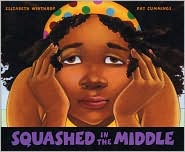
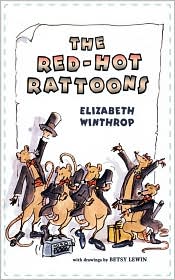
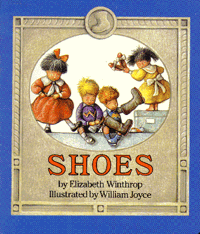

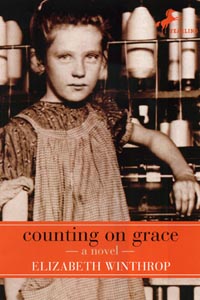
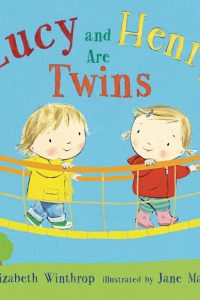
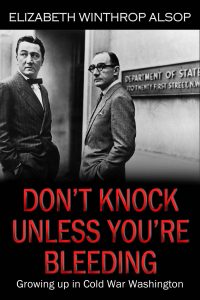

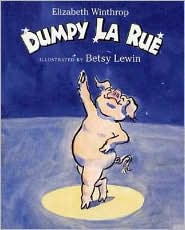

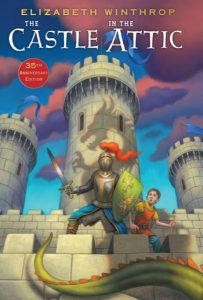

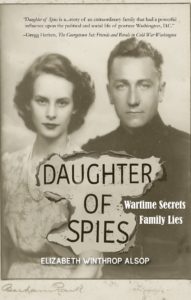
I just reread this marvelous account: beside your uncle’s unwavering patriotism, I enjoyed the juicy bits about Joe as third parent! I hope this piece gets much wider exposure— and would serve as a reminder that journalists focus on finding and telling THE TRUTH– critical in these days of “alternative facts”!
What a marvelous piece of history and so relevant right now. Rachel Maddow loves to give historical context for her evening breaking news — maybe she would be very interested in your story. I would reach out to her producers for sure. It is a story that must be told to this generation.
Elizabeth, this is a great piece. It seems quite relevant to our troubled times, and your Uncle Joe absolutely was a hero. Thanks for sharing his story.